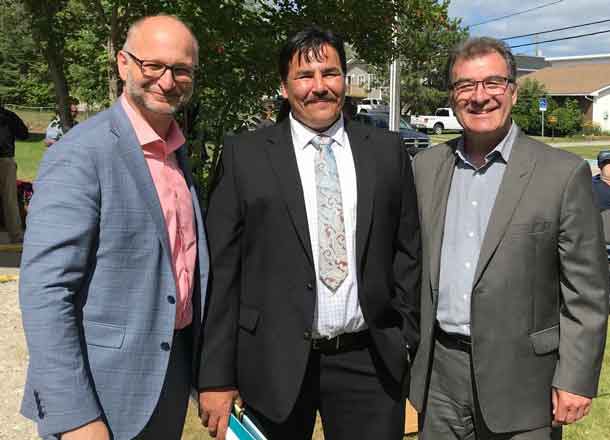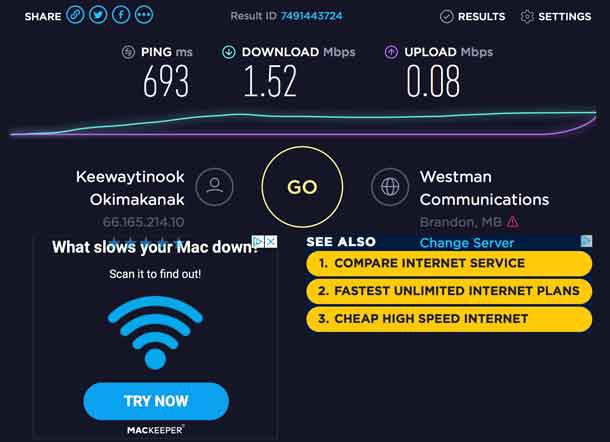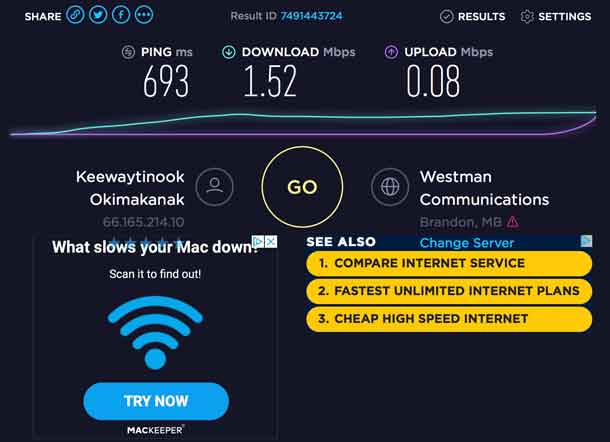
SIOUX LOOKOUT – Bob Nault, Member of Parliament (Kenora riding), along with David Lametti, Parliamentary Secretary to the Minister of Innovation, Science and Economic Development, announced an investment of $7.03 million which will help six Indigenous communities and up to 58 institutions in Northern Ontario get online with new or improved high-speed Internet access.
The announcement was made at the Kuhkenah Network (K-Net) office, a First Nations owned and operated Internet service provider, in Sioux Lookout.
“Northerners need access to high-speed Internet to fully participate in our economy, democracy, and way of life,” said Nault. “I strongly believe that reliable high-speed Internet will be an economic driving force in rural and remote communities.”
In many rural and remote communities, challenging geography and small populations present barriers to private sector investment in building and maintaining high-speed Internet infrastructure. This investment will help residents of these communities connect with family and friends, do business online, access telemedicine, participate in distance education and take advantage of the opportunities afforded by the digital age.
In total, $8.89 million is being invested in Northern Ontario communities: $7.03 million from the Connect to Innovate program, along with a combined contribution from K-Net and the Western James Bay Telecom Network of $1.76 million and $100,000 from other contributors.
Fort Severn First Nation, in the Kenora riding, along with Peawanuk, is benefitting from $6,229,575 through the federal government’s Connect to Innovate program.
“Internet access is more than just a convenience: communities, businesses, and institutions need it to find information, offer services and create opportunities,” added Nault. “Today’s announcement is essential in connecting these communities so they can grow and prosper.”
Chief Paul Burke, Fort Severn First Nation says, “Fort Severn First Nation is the most northern community in Ontario, located along the Hudson Bay coast. Fort Severn currently uses satellite bandwidth, but the current limit does not meet the demands of the community. Visiting doctors need to open their electronic medical records to support health services, school classrooms are limited in their use of 21st-century learning technologies, and in our band office it takes hours to open any document or up to two days to update software. This greatly reduces our capabilities in an age when everything is electronically transmitted. We are thrilled to receive this funding and are looking forward to accessing high-speed Internet comparable to that in the rest of Canada. This will assist our community in being more connected, it will help with service delivery, and our young people can take advantage of the technology for work and education.”

Internet speeds in Fort Severn are as slow as 0.05 megabytes per second, with upload speeds as slow as 0.01 megabytes per second under the current system.







